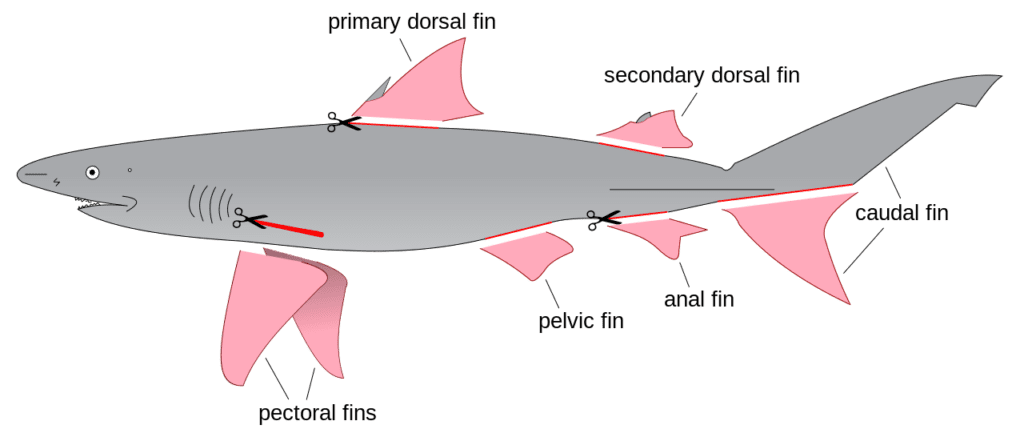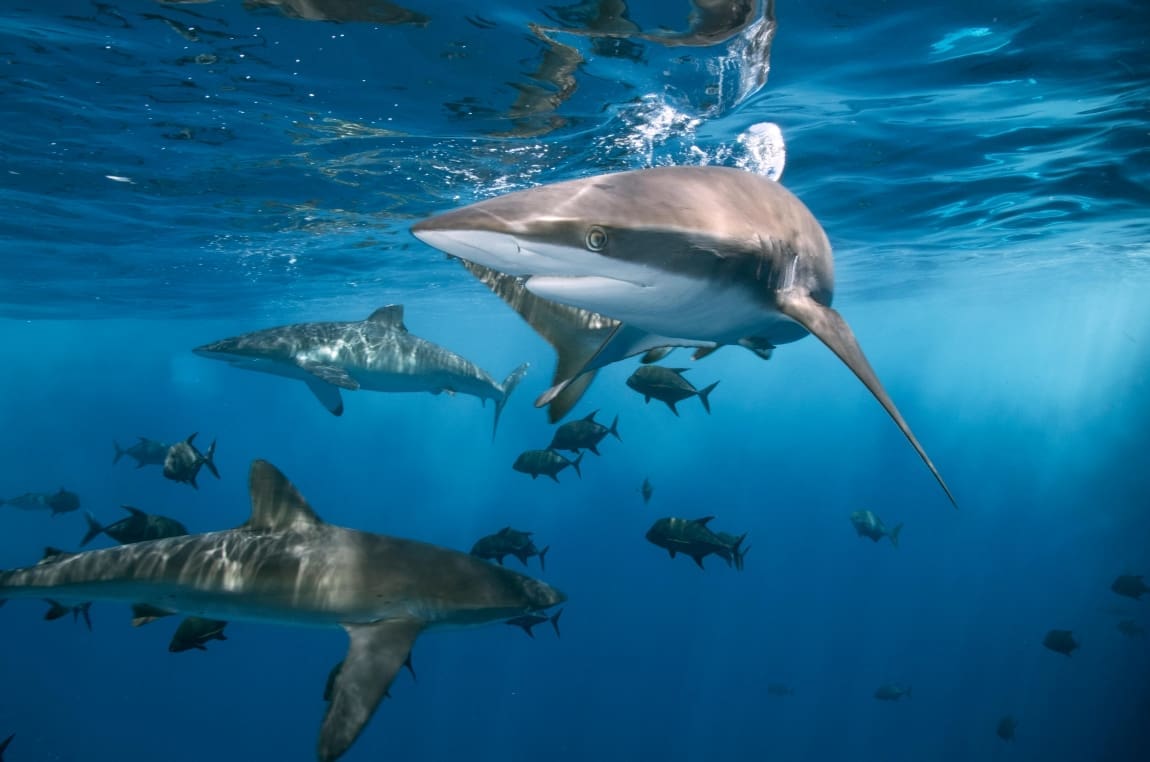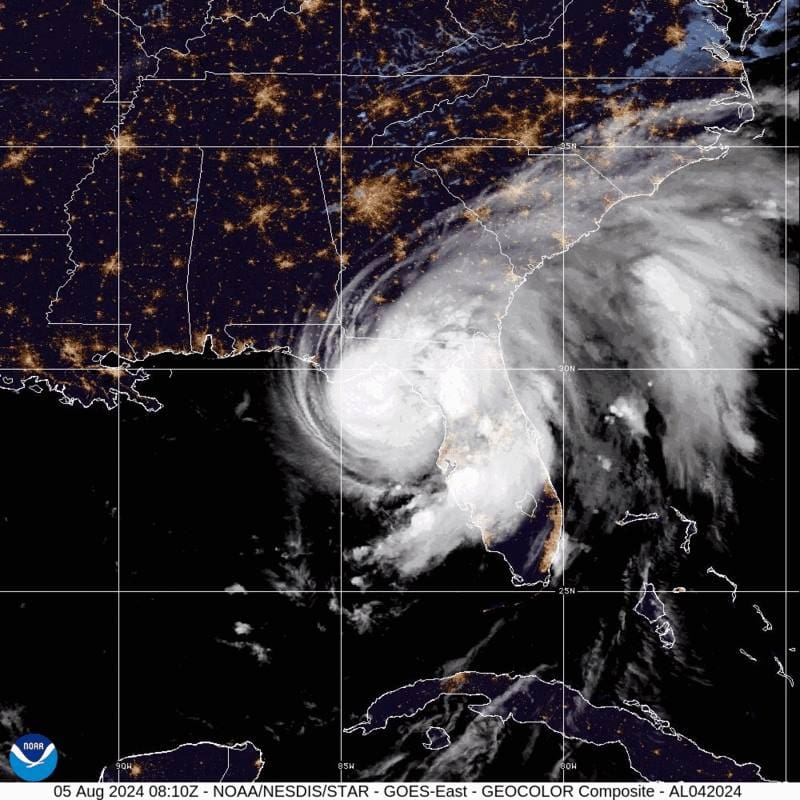By Miren Gutiérrez, The Conversation
Shark finning – the practice of removing the fins from a captured shark and discarding the rest, often still alive, back into the ocean – is banned in many countries due to its inhumane and unsustainable nature. However, these fins are highly valued for their use in shark fin soup, a delicacy in China and other east Asian countries.
I’ve been investigating the industrial fishing fleets that operate in the waters of five developing countries – Senegal, Ghana, Peru, Ecuador and the Philippines – but aren’t from these countries. Some have been caught finning or practicing other unsustainable fishing practices in these so-called “distant waters”.
For a new report published by the global affairs thinktank, ODI, my team of data analysts and I measured the impacts of big fishing businesses with a previous track record of unsustainability on the local economy, jobs and people’s welfare in these countries.
This Fishy Business report is the first study to estimate this and we found that these companies can have substantial and negative impacts. Together, their joint fishing activities are equivalent to 0.26% of these countries’ combined GDP or 30,174 jobs in the fishing sector. That could mean 142,192 more people living below the poverty line in the five countries because of unemployment and lack of access to fish to eat, among other factors.
In terms of illegal finning, the high value and small size of shark fins drives this practice, as fishers can store and transport them easily, making it profitable to discard the rest of the shark at sea.
Despite a ban on the trade of sharks in 2016, Peru is one of the top exporters of shark fins – about 400 tonnes per year worldwide – contributing close to 2% of global fin production. However, Peru only issued its first shark fin trafficking conviction in 2022.

Sometimes, the vessels that are apprehended red-handed are also involved in other unsustainable and cruel practices. Our investigation refers to a US Treasury Department report that documents how, in 2019, a vessel went to sea with a crew of 24 in the Pacific Ocean. While licensed for tuna fishing, the vessel engaged in illegal shark finning, taking more than 700kg of fins, including from endangered species.
After 13 months at sea without a port visit, the crew faced dire conditions, including 18-hour work days and being fed on out-of-date food and brown desalinated water. Five crew members were reported dead, and three of their bodies were dumped at sea. On return, the surviving crew were malnourished and paid just a fraction of the promised wages. They also reported deceptive recruiting and confiscated documents. The investigation found similar abuses across the fleet, including physical assault, malnutrition, withheld pay and five more deaths. Despite these violations, the company received US$8 million (£6.3 million) annually in fishing subsidies from China.
A handful of large conglomerates – 19 companies – owning or operating 657 vessels in these waters have been previously implicated in wrongdoing or involved in diverse unsustainable practices. Some of them were charged, others appear in trustworthy reports by agencies and organisations such as the US Treasury Department or environmental campaign charity Greenpeace, or have been denounced by prestigious investigative journalists.
The list of irregularities, wrongdoing, illegalities and unsustainable practices taking place is long. It includes incidental fishing (catching illegal species and surreptitiously incorporating them into fish meal processing), lack of transparency about how fish are being caught or the structure of these companies and corruption, including paying bribes.
Some vessels have been found to be participating in the “saiko” system – this involves illegally transferring fish at sea from industrial trawlers to local canoes in Ghana. The saiko trade is a barter system whereby unwanted catch of industrial fishing vessels would be exchanged at sea for food and livestock brought by canoes. Today, industrial vessels target species for the saiko trade, distorting the local markets and industry and facilitating juvenile fish trade. We wonder why would these countries continue allowing companies like that to operate in their waters when it results in economic loss of opportunity for sustainable fishing by small vessels and local fishers.
Our team compiled knowledge on fisheries from various sources, from maps and satellite data to confirm a vessel’s route to information about the capacity, gear type and ownership of each vessel. We also trained deep-learning algorithms to identify fishing practices such as trawling or long-lining, which are not inherently bad if performed legally and responsibly but can be linked to unsustainable practice.
Reflagging of ships
The report highlights the real scale of domestic and foreign fleets operating in these waters. For example, our map analysis and satellite data showed that the biggest fleets in these five countries’ waters are not their own domestic fleets but, from largest to smallest, Ecuador (with 493 vessels), China (191), Peru (189), Spain (126), Japan (84), Panama (68) and Taiwan (64). Senegal (with 57 vessels), Ghana (33) and the Philippines (25) are lagging behind, so other countries’ fleets are more prominent in the number of vessels that domestic fleets.
Our analysis highlights that the domestic fleets of these developing nations include vessels from big fishing nations that have changed their flag to falsely imply they are from a local port. A total of 192 vessels were found to be connected to Chinese interests but flagged to other countries. This “reflagging” to incorporate foreign vessels into domestic fleets raises questions, as it can generate market distortions, encourage the excess of sustainable catch limits and threaten food security and livelihoods.
We found that vessels’ fishing operations in these waters show intense competition between domestic and foreign fleets of the same fishing type. Foreign industrial vessels’ technical capacity to fish non-stop and travel to remote areas often awards them a competitive advantage over domestic fleets, which include thousands of artisanal fishing vessels.
Effective policies hinge on transparency and understanding illicit or unsustainable practices, and our report fills a crucial knowledge gap. By expressing the impacts of allowing industrial fishing vessels to operate in domestic waters in terms of financial loss and direct human impacts, the need for greater transparency and reform are clear.
This article is republished from The Conversation under a Creative Commons license. Read the original article.
Featured image credit: Mile Ribeiro | Pexels




